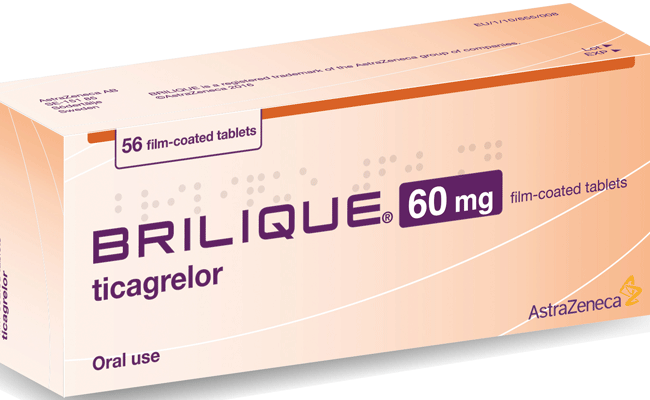
A new subanalysis of the phase III PEGASUS-TIMI 54 trial indicates that ticagrelor (Brilique, AstraZeneca), in combination with low-dose aspirin, is associated with a 19% reduction in the risk of major adverse cardiac events (MACE) in myocardial infarction patients with multivessel disease. The analysis has been published in the Journal of the American College of Cardiology.
The subanalysis showed that there was a consistent relative risk reduction with ticagrelor 60mg vs. placebo for MACE in patients with multivessel disease (hazard ratio, HR, 0.81, 95% CI 0.7-0.95) and in those without multivessel disease (HR 0.88, 95% CI 0.72-1.06; Pinteraction=0.55). As patients with multivessel disease are at higher risk of MACE, the absolute relative risk reduction with ticagrelor 60mg was greater for these patients compared to those without multivessel disease (1.57% versus 0.88).
In terms of coronary events, the HR with ticagrelor 60mg was 0.77 (95% CI 0.65-0.92) in patients with multivessel disease and 0.95 (95% CI 0.75-1.20) in patients without multivessel disease (Pinteraction=0.18). Again, given the higher absolute risk of coronary events in patients with multivessel disease, the magnitude of the ARR tended to be greater in these patients compared to those without multivessel disease (1.55% vs. 0.15%).
However, the rate of TIMI major bleeding was significantly increased with ticagrelor 60mg compared with placebo in patients with and without multivessel disease, which was consistent with the overall findings seen in PEGASUS-TIMI 54 (with multivessel disease: 2.58% vs 1.08%, absolute risk increase [ARI]=1.5%; without multivessel disease: 1.91% vs. 1.03%, ARI=0.88%). There were also similar rates of intracranial haemorrhage or fatal bleeding when treated with ticagrelor 60mg vs. placebo (with multivessel disease: 0.8% vs. 0.63%, ARI=0.17%; without multivessel disease: 0.58% vs. 0.56%, ARI=0.02%).
Commenting on the analysis, Robert Storey (University of Sheffield, Sheffield, UK), investigator in the PEGASUS-TIMI 54 trial, says: “Patients with multivessel disease are at higher risk of further coronary events compared to those without, which makes treatment decision-making especially crucial. This new analysis of the PEGASUS study shows that ticagrelor 60mg can reduce the risk of fatal coronary events in patients with multivessel disease by over a third (36%), emphasising its importance as a secondary prevention medication option for these patients. The presence of multivessel disease on coronary angiography can alert physicians to the potential benefit of ticagrelor 60mg after patients have completed their first year of treatment following myocardial infarction.”
In this prespecified analysis from the PEGASUS-TIMI 54 trial, the efficacy and safety for long-term ticagrelor therapy in patients with prior myocardial infarction and multivessel disease were evaluated over a median of 33 months.











